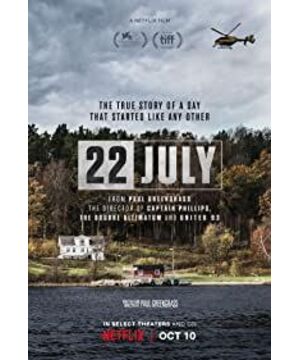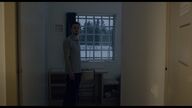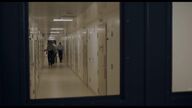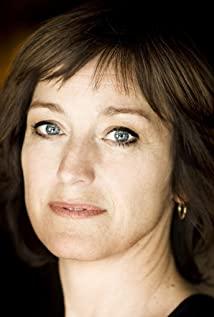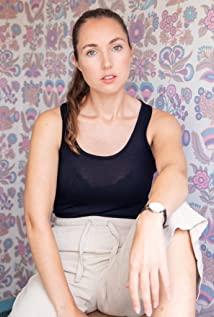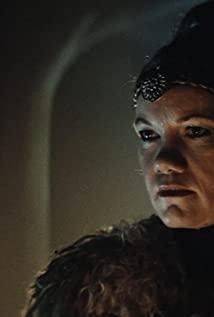British director Paul Greengrass still loves political expression, and of course, in this information-heavy work, he also infuses moral ethics, human nature and law, as well as insights on the current situation in Europe, especially the refugee issue. Before watching it, I thought that there would be a lot of bloody and cruel killing scenes on the screen, but the scene of the massacre only took up less than half an hour at the beginning of the film, and the expression was relatively restrained, and did not overly exaggerate the brutal behavior of the killer. Instead, the focus of the script is on the reconstruction of the survivors' minds after the tragedy, the trial of the terrorist attacker, and the intertwining of multiple clues in the defense lawyer and the prime minister's control of the situation, gradually weaving a painful process of gradual healing in a Nordic democratic country after a terrorist attack. With so many story lines, the film feels more like a condensed version of a TV episode to me. Fortunately, the director's consistent photography and editing skills laid the audio-visual foundation, preventing the film from becoming a mediocre TV movie. In fact, it can be compared to Fatih Akin's "Out of thin air" last year, which also shows the negative impact of neo-Nazism on European society. "It is clear that Greengrass is much more rational in dealing with unsolved means. The clue of the terrorist's defense lawyer will undoubtedly make the audience have more thinking points, not only limited to the legal system of this democratic country, but also more complex issues about human rights and morality. The best way to deal with it is the paragraph where the survivor of the terrorist attack finally confronts the attacker in court. It skillfully combines the two main clues, and it also implies that the country has recovered its high fighting spirit after the tragedy to face it. Difficulties and obstacles, optimistic and wise attitude makes people look moving.
View more about 22 July reviews


